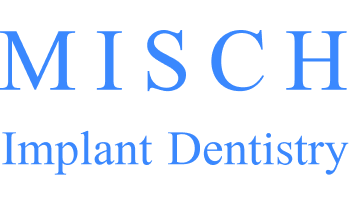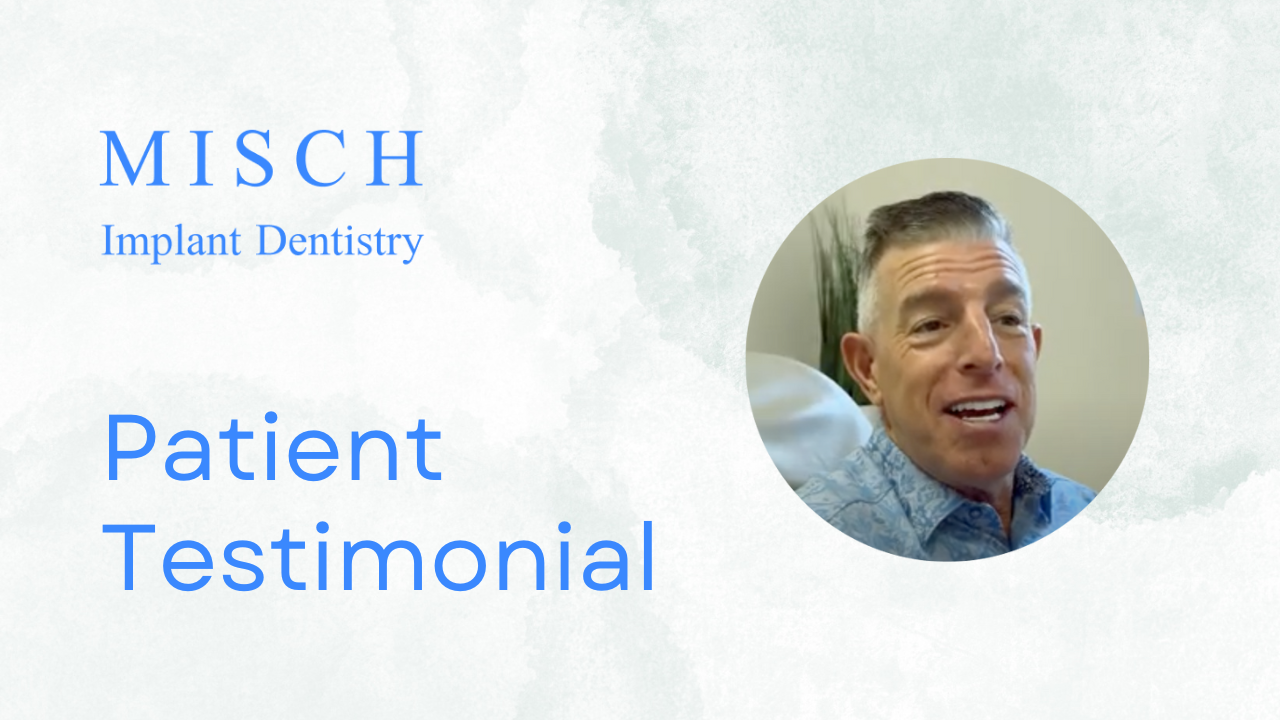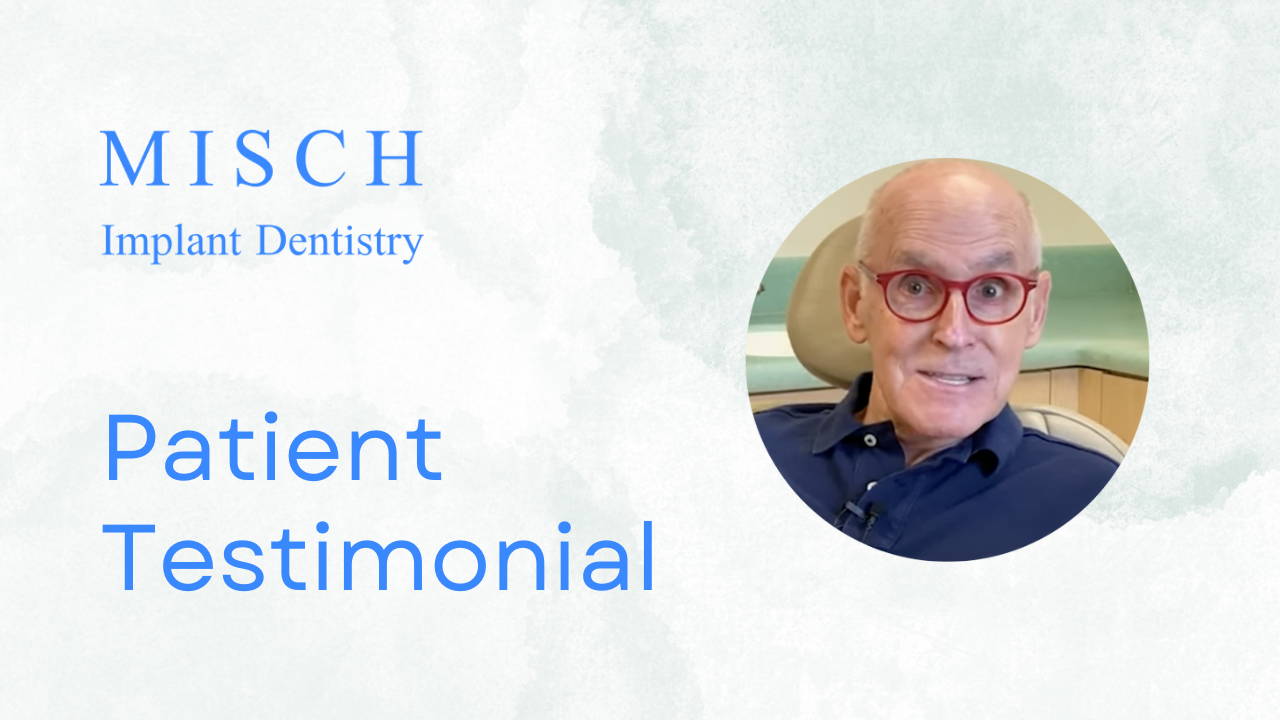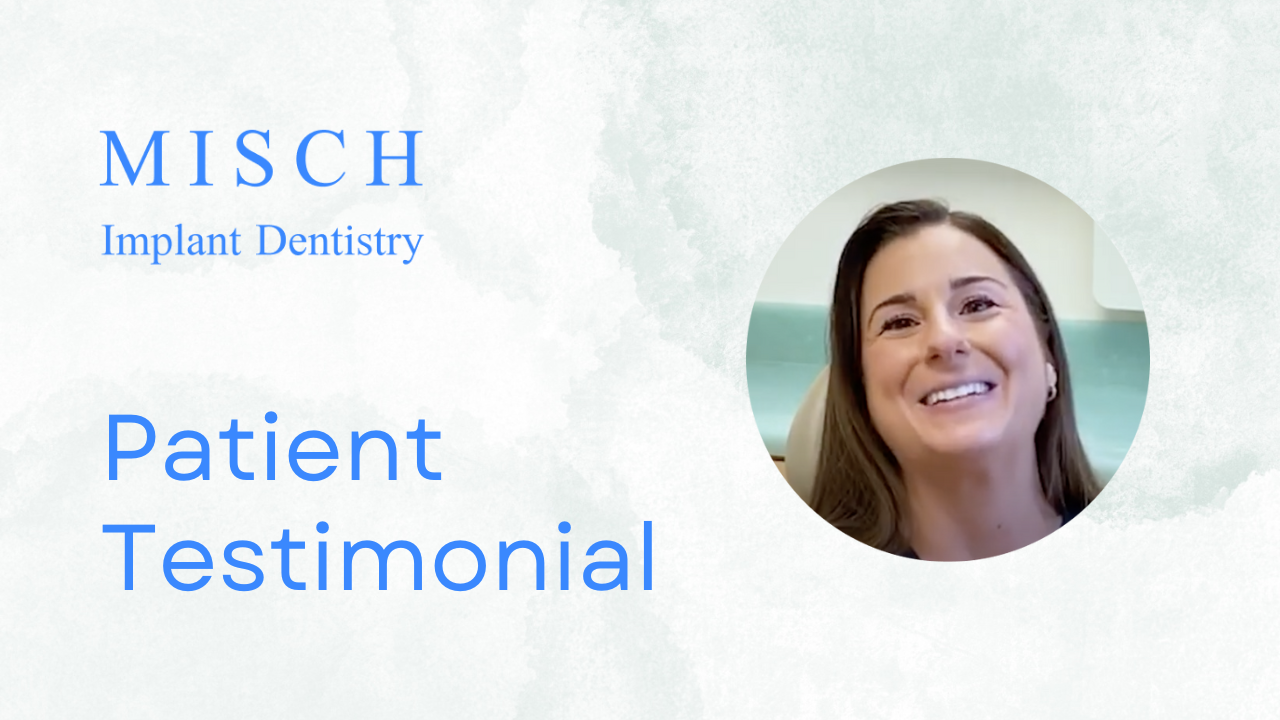
Signs You May Need to Extract a Tooth
The thought of having a tooth removed may be a terrifying one, but extraction is often a necessary step that opens up the possibility of building a stronger, healthier, more beautiful, and pain-free smile. As a skilled oral surgeon and dental specialist, Dr. Misch can help you determine whether extraction is truly necessary and, if so, provide you with quick relief from the pain. Our team of dental implant providers will also help you explore the possibility of getting an implant to replace your tooth.
Here are the signs and symptoms that often necessitate tooth extraction:
- Signs of gum disease such as discoloration, bleeding, or a foul taste or odor in the mouth
- A deep tooth fracture that extends below the gums
- Tooth pain that worsens with pressure or chewing
- Teeth that have become loose from gum disease
- Tooth sensitivity to temperature changes
- Swollen gums around the tooth or teeth
- Jaw pain or stiffness
- Severe tooth pain
- Dental abscess
How We Perform Tooth Extractions
Dr. Misch is an oral surgeon who specializes in removing problem teeth quickly and safely using a technique that helps preserve the bone tissue around the extraction site. He can provide a tooth extraction experience that you won’t find in a general dental office. What’s more, Dr. Misch also is an experienced implant dentist who can carefully coordinate your tooth removal with a treatment plan for replacing it with an implant.
Whether you need to have just one tooth removed or multiple, we will probably only need one appointment session to take them out.
The Consultation
The first step is to visit Misch Implant Dentistry for a consultation to explore your treatment options. If there is a very good chance that your tooth will survive with restorative treatment, then we may recommend you try to save your tooth. It’s always ideal to hold on to a natural tooth. However, if it looks like there’s not a good chance of survival, then having it removed and replaced is the ideal option. Dr. Misch will consider your dental health, esthetic preferences, and other circumstances before making a treatment recommendation.
Removing Your Tooth
Dr. Misch will administer a local anesthetic injection so that you won’t feel anything when your tooth is removed. If the idea of having a tooth extracted makes you nervous, we can supply you with some sedation to help you relax. Once you’re comfortable, Dr. Misch will start working to loosen the tooth using special tools. Extracting a tooth is generally a matter of minutes and it will be out before you realize it. We’ll send you home with aftercare instructions to help you manage any post-operative swelling or bleeding.
Planning Your Replacement
Dr. Misch will talk with you about your smile restoration goals before he removes your tooth. If everything goes as planned and the bone tissue around your tooth socket is healthy, he may be able to place a dental implant on the same day your tooth is removed. This can even be done if you need to have all of your remaining extracted and you want to leave the office with a set of new teeth. This treatment is often called “same-day teeth.” Same-day implant placement is not always feasible, so Dr. Misch will let you know if it’s better in your case to let your mouth heal before getting implants.
Contact Us Today
to schedule an initial consultation & exam.
If your tooth is loose or in pain, then you may need to have it removed. Perhaps a dentist has already told you that it should be extracted and you would like a second opinion. Whatever your situation may be, Dr. Misch can help. Dr. Misch will examine your tooth carefully and let you know what your treatment options are.
Frequently Asked Questions
No. You won’t feel any pain at the time your tooth is extracted. Local anesthetic and even some dental sedation if you’re nervous will take care of that. Dr. Misch uses advanced dental technology and specialized tools to perform extractions as smoothly as possible, and as a result, you should experience a quick and fairly comfortable recovery. We’ll give you written post-operative instructions to help you heal as fast as possible.
You can remove the gauze from your mouth about an hour after your treatment and you can eat something at this point. Just make sure that you stick to soft foods for the first 24 hours. Don’t eat anything spicy, hot, or anything that could irritate your sensitive mouth. Don’t suck liquids through a straw as the suction this creates in your mouth can disturb the extraction site and lead to dry socket. Avoid foods with tiny seeds that can get lodged in the tissues of the extraction site.
You don’t have to worry too much about this as we will go over all of this before we remove your tooth. We will also provide you with written instructions you can take home and reference after your extraction appointment.
Here are some general tips we give to all patients who have a tooth extracted:
- For the first 24 hours after your appointment, avoid spitting, rinsing your mouth, smoking, blowing your nose, or using a straw.
- Try to not disturb the healing extraction site with your finger, tongue, or toothbrush
- Take a pain-reliever to reduce swelling and discomfort, but don’t take aspirin which prevents blood clotting
- Get plenty of rest and avoid physical exertion for a day or two after your extraction
Recovery time is different for everyone depending on how their extraction appointment went. You may need just one day of rest to recover from a simple extraction, but it could take two weeks for you to recover from wisdom tooth extraction.









